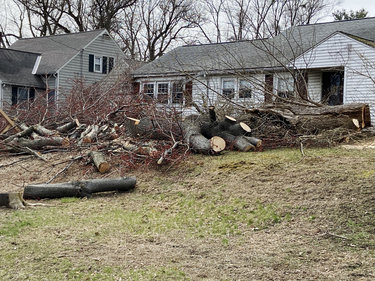Appeals court in Guilderland-Pyramid lawsuit allows case to cut the line
GUILDERLAND — The judge overseeing the town of Guilderland and Pyramid Management Group’s appeal to reverse a lower court’s decision that stopped construction of the company’s Rapp Road and Western Avenue projects has agreed to a request for “an expedited briefing schedule on this appeal.”
The order from Justice Christine M. Clark of the New York Supreme Court, Appellate Division, Third Department means that both sides are to have all of their paperwork filed before March 11.
Kevin and Sarah McDonald, along with other Westmere residents Lisa and Thomas Hart, and gas-station owner Jonathan Kaplan in September of last year filed a lawsuit against both the town and Pyramid after the Guilderland Planning Board approved the company’s 222-unit apartment-and-townhome development on Rapp Road in addition to a Costco Wholesale store.
In November 2020, Albany County Supreme Court Judge Peter Lynch ruled in the group’s favor. The Appellate Division is the middle level in the state’s three-tiered court system.
James Bacon, the attorney for the plaintiffs, in a Feb. 8 court filing argued that the town and Pyramid should be denied “preferential treatment” because of their request “is belied” by a record of “conclusory,” or asserting without evidence, “self-serving and equally troubling representations … made … without the support of empirical data ….”
Bacon argued that “the equities lie in this appeal being heard in due course with no preferential treatment as sought by” the town and Pyramid.
Bacon told The Enterprise on Monday that he is currently working on a response to Pyramid and Guilderland’s appeals.
Bacon said the argument in his Feb. 8 filing opposing an expedited briefing schedule concentrated on Lynch’s decision because “the standard of review is to look at good cause and, to me, good cause is reflected by the facts of the matter,” or Lynch’s 77-page decision.
Pyramid, Bacon argued, carried the same “recklessness” into the current lawsuit as it did last fall when it clear-cut trees for a Costco before environmental review for the project was completed as Pyramid now “doggedly pursued sanctions against petitioners for having the temerity to request a preliminary injunction,” to stop construction. Bacon noted the group filed its initial paperwork in September of last year, preventing Pyramid from starting construction on any of its proposed projects so that the lawsuit “does not become moot.”
“In sum, appellants accepted the risk of attempting to push through a project which clearly did not comport with the TOD [Transit Oriented District] in virtually every respect and thus the equities lie in this appeal being heard in due course with no preferential treatment as sought by appellants,” Bacon argued.
A call to the Third Appellate Division was not returned before press time, but Bacon explained that a section of New York Consolidated Laws, Civil Practice Law and Rules says that “Article 78 proceedings normally should move to the front of the queue in an appeal.”
An Article 78 proceeding, like this one, is typically brought by citizens questioning a government decision.



